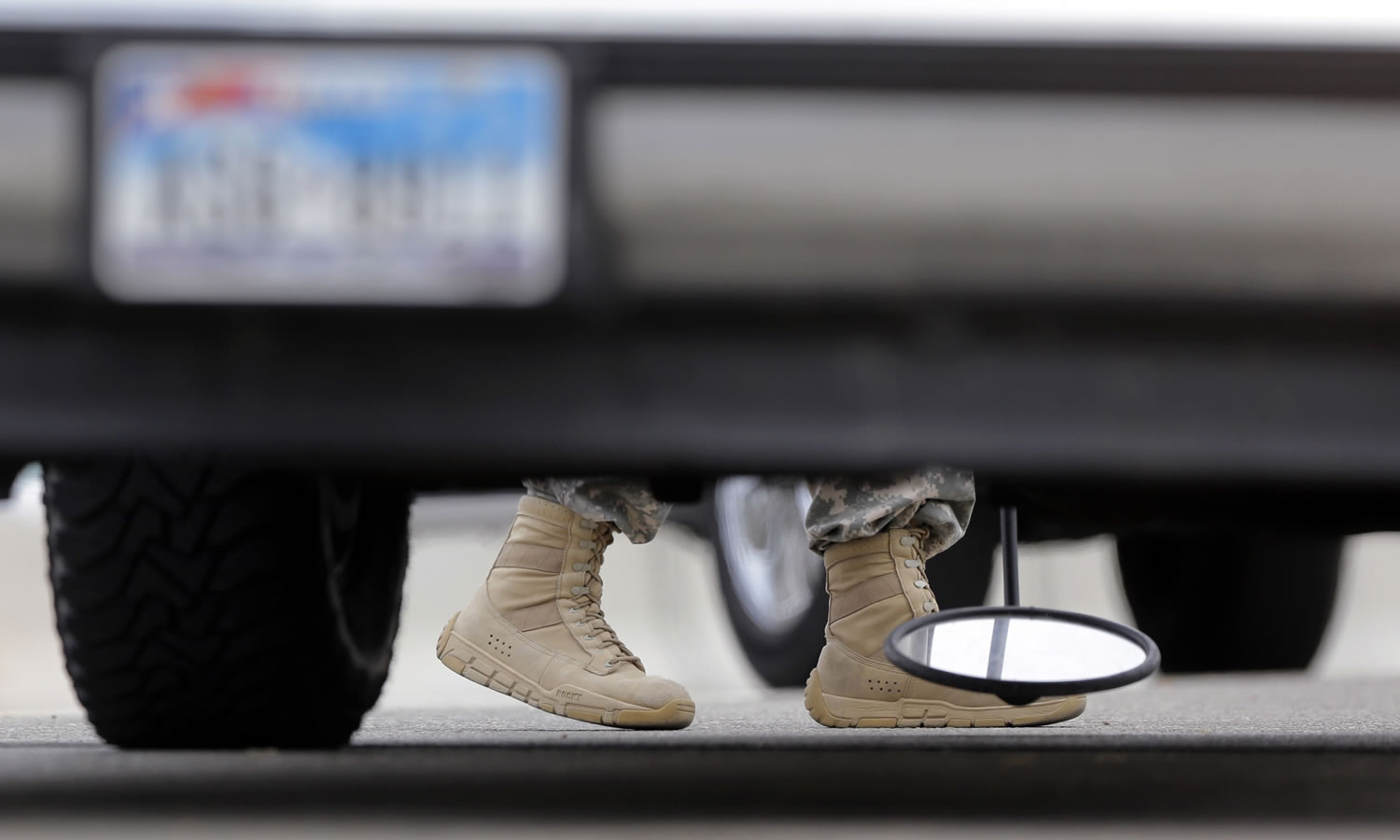FORT HOOD, Texas — The Army psychiatrist who killed 13 people at Fort Hood decided not to call witnesses or testify Tuesday during his trial’s penalty phase, which is his last chance to plead for his life before the jury begins deliberating whether to sentence him to death.
Maj. Nidal Hasan rested his case without submitting any evidence to counter the emotional testimony from victims’ relatives, who prosecutors hope convince jurors to hand down a rare military death sentence. The same jury convicted Hasan last week for the attack, which also wounded more than 30 people at the Texas military base.
The judge dismissed jurors after Hasan declined to put up a defense. But she then asked Hasan more than two dozen questions in rapid fire, affirming that he knew what he was doing. His answers were succinct and just as rapid.
“It is my personal decision,” he said. “It is free and voluntary.”
The judge, Col. Tara Osborn, then read him several court opinions to back up her decision not to introduce evidence in Hasan’s favor on her own.
“In other words, Maj. Hasan, you are the captain of your own ship,” Osborn said.
Closing arguments are scheduled for Wednesday. Whether jurors will hear from Hasan remains unclear. He has been acting as his own attorney but has put up nearly no defense since his trial began three weeks ago.
Hasan rested his case shortly after more than a dozen widows, mothers, fathers, children and other relatives of those killed testified about their lives since the attack. They talked of eerily quiet homes, lost futures, alcoholism and the unmatched fear of hearing a knock on the door.
Sheryll Pearson sobbed when shown a photo of her son, Pfc. Michael Pearson, hugging her during his graduation.
“We always wanted to see who he was going to become. Now that was taken away from us,” she said.
Teena Nemelka lost the youngest of her four children, Pfc. Aaron Nemelka, whom she called, “my baby.” She talked about her frantic searches for information in the moments after learning about the Nov. 5, 2009, shooting and about her fear of hearing a knock at the front door of her home.
“You just freeze,” she said. “You don’t want to open that door.”
But the knock came, with “the worst news you could ever hear.”
Joleen Cahill told jurors that she misses hearing her husband’s footsteps in their Texas home, which she said now feels empty. Witnesses have said her husband, Michael Cahill, was armed only with a chair when he tried to charge Hasan as Hasan opened fire on unarmed soldiers inside a crowded medical building at Fort Hood.
The 62-year-old physician’s assistant was the only civilian killed in the attack.
“One of the hardest things was being alone for first time in 60 years of my life. No one to come home to at night. No conversation. We loved to talk politics,” she said.
Philip Warman said the slaying of his wife, Lt. Col. Juanita Warman, “was like I had something ripped out of me.”
“I pretty much drank until the following June,” he said.
He said he checked into a substance abuse center for 28 days, and he had friends remove his weapons from his home because he didn’t trust himself.
Warman now takes the coins distributed during his Alcoholic Anonymous meetings to Arlington National Cemetery, where his wife is buried next to another Fort Hood victim, Maj. Eduardo Caraveo.
“I push them into the ground at my wife’s grave,” he said.
One of the soldiers who survived the shooting walked into the courtroom Tuesday with the help of a cane. Lt. Col. Randy Royer, who underwent multiple surgeries after being shot in the arm and leg, told jurors that he also suffered from post-traumatic stress disorder.
“Usually when I’m in a large group of people, I have a lot of issues,” he said.
“One of the worst times is when I have to go to pharmacy. They have all the chairs lined up (like the scene of the attack),” he said. “When I walk in there, I don’t do well.”
Prosecutors want Hasan to join just five other U.S. service members currently on military death row. That would require a unanimous decision by the jury of 13 military officers, and prosecutors must prove an aggravating factor and present evidence to show the severity of Hasan’s crimes.
Hasan has done little to counter prosecutors’ case. He called no witnesses and didn’t testify in his own defense before he was convicted, and he questioned only three of prosecutors’ nearly 90 witnesses. Although he gave a brief opening statement, during which he acknowledged that the evidence would show he was the shooter, he gave no closing argument.
But through media leaks and statements to the judge, the American-born Muslim appeared to justify the attack as a way to protect Islamic leaders from U.S. forces in Afghanistan and Iraq. Hasan released a report to the media during the trial that showed he told military mental health workers after the attack that he believed he could still be a martyr if convicted and executed by the government.
No American soldier has been executed since 1961. Many military death row inmates have had their sentences overturned on appeal, which are automatic when jurors vote for the death penalty. The president also must eventually approve a military death sentence.



